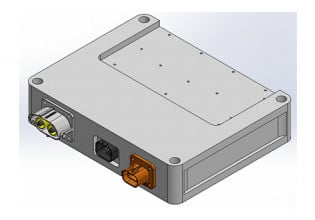Energy Monitor and Data Logger for Single- or Three-Phase Power
Ringdale Inc. announces its CT Energy Monitor and Data Logger with Ethernet connectivity for single- or three-phase power systems. The solution allows energy and facility managers to monitor and easily detect a variety of power issues, resulting in improved oversight of energy costs and energy conservation initiatives.
Used anywhere accurate logging of energy is required, the CT Energy Monitor and Data Logger measures RMS current and voltage. Managers remotely access the solution through their network to identify where energy is being wasted or to identify patterns of increased power use. The information is much more robust than merely trying to review utility bills. Gathered information can be accessed in real time via a web application or stored onto a USB drive for later evaluation.
The system is suited for applications requiring accurate monitoring of energy usage for multiple locations, such as in high-rise buildings where energy use-per-tenant or per-floor is used for billing. Besides keeping a record of energy use, the CT Energy Monitor and Data Logger can also send an alarm notification via email in the event of a high- or low-current event or other user-programmed criteria, such as low voltage, voltage surges, power outages, brownouts, or failures.
Klaus Bollmann, president of Ringdale, explains how CT Energy Monitor and Data Logger recently helped a customer identify the source behind higher energy bills. "A customer changed its exterior showcase lighting to energy-efficient ActiveLED lighting and saved $10,000 on its monthly energy bill. Several months passed, and energy bills started to increase. After installing the CT solution, the facility manager could see what needed to be done to support the company's energy efficiency goals. The information let our customer see the impact of employees using personal heaters and helped the customer prioritize where new efficiency-based improvements should be made. It's about having the right data for targeted, accurate decision making," concluded Bollmann.






